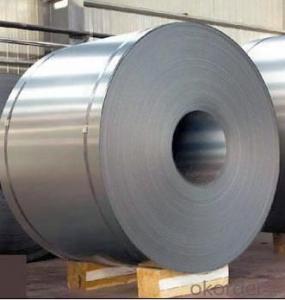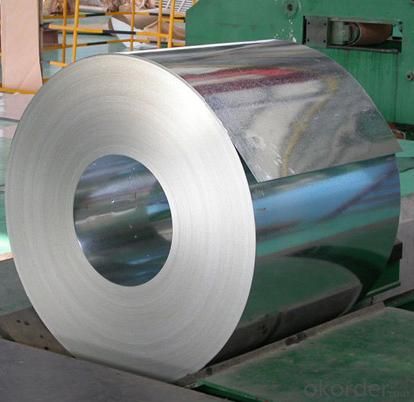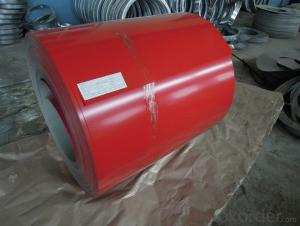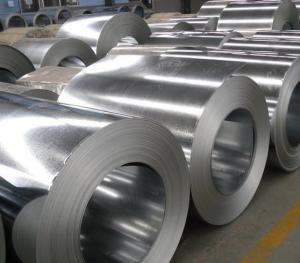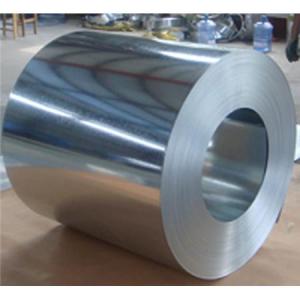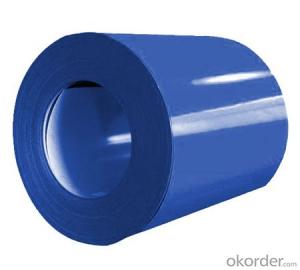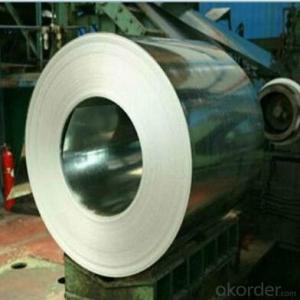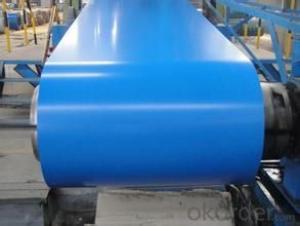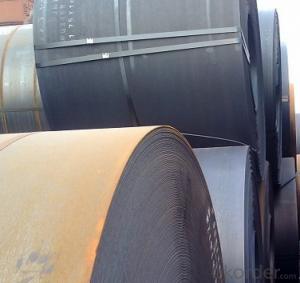Dx51d Grade Galvanized Steel Coil with CE Approved
- Loading Port:
- Shanghai
- Payment Terms:
- TT OR LC
- Min Order Qty:
- 25 m.t.
- Supply Capability:
- 10000 m.t./month
OKorder Service Pledge
OKorder Financial Service
You Might Also Like
Basic Info.
Model NO.:DX51D, SGCC, DX52D
Type:Steel Coil
Technique:Hot Dipped
Standard:ASTM, AISI, GB, JIS, DIN, BS
Surface Treatment:Galvanized
Special Use:Wear Resistant Steel
Application:Ship Plate, Container Plate
Thickness:0.13-4mm
Width:600-1500mm
Zinc Coating:60-275G/M2
Grade:Dx51d, SGCC, Sgch, A653, Dx52d, Dx53D
MOQ:5tons
Certificates:BV, SGS, ISO, CE, Ciq
Stock:Yes
Sample:Free
Spangle:Minimum, Zero, Big, Regular
Export Markets:Global
Additional Info.
Trademark:Sino Steel
Packing:Standard Seaworthy Export Packing
Standard:DX51D, SGCC, SGCH, A653
Origin:Shandong
HS Code:721049000
Production Capacity:1000 Tons/Day
Product Description
Specification:
1. Thickness: 0.11mm-3mm
2. Width: 600mm-1500mm
3. Length: According to client's demands
4. Inside Diameter: 508mm/610mm
5. Outside Diameter: 1000mm-1500mm
6. Coil weight: 3-8 tons
7. Payment: T/T, L/C, D/P, Paypal, Western Union
8. Trade Term: FOB, CFR, CIF
9. MOQ: 25 Mt
10. Package: Export standard package or as request
11. Shipment: By container
12. Standard: AISI, ASTM, BS, DIN, GB, JIS
13. Grade: SPCC/SPCD/SPCE/ST12-15/DC01-06
Our advantage
1. Certificate: ISO, BV, CE, SGS
2. Feedback within 24 hours
3. Best price from our own factory
4. Quick delivery
5. Stock and production
6. Cooperation with BAO STEEL and LAIWU STEEL
7. Experience for many years, specilized in manufacturing and exporting
8. Customers from many continents, such as North America, South America, Europe, Africa, etc
Take customers as the honoured, Take quality as the foundation!
Strive For Survival On The Basis Of Quality!
| Name | Galvanized steel coil |
| Standard | AISI,ASTM,GB,JIS |
| Material | SPCC/SPCD/SPCE/ST12-15/DC01-06. |
| Thickness | 0.13-4mm |
| Width | 600-1500mm |
| Tolerance | "+/-0.02''mm |
| Surface treatment: | galvanized |
| Coil ID | 508mm/610mm |
| Coil Weight | 3-8 tons |
| Technique | Cold rolled |
| Package | seaworthy package |
| Certification | ISO 9001-2008,SGS,CE,BV |
| MOQ | 25 TONS (in one 20ft FCL) |
| Delivery | 15-20 days |
| Monthly Output | 10000 tons |
| Description | The cold rolling reduces the thickness of the steel and at the same time changes the mechanical properties of the steel. Cold rolled steel must be further processed, as the steel will react with water in the air and form rust. In most cases, it is covered with a thin layer of oil to prevent oxygen reacting with surface. The steel coils can be annealed (heated in a controlled atmosphere) to make the steel more formable (cold rolled annealed) or further processed on the metallic coating line, with a coating of either zinc (galvanized) or zinc-aluminium alloy applied. Cold rolled steel is available in a range of grades, each with a range of properties for differing applications. |
| Payment | 30%T/T in advanced+70% balanced;irrevocable L/C at sight |
| Remarks | Insurance is all risks and accept the third party test |
- Q: What is the AISI grade of mild steel that is the most magnetic? What magnetic steels are the cheapest and easiest to buy?
- Silicon steel is the most magnetic material for making into transformer cores and motor cores. It contains 1.25 to 2.5% Silicon. Silicon steel is usually rolled to 2mm plates as lamination material. Iron may be magnewtic but it has low resistivity. With high silicon alloyed to iron resistivity is increased and core and hysteres are losses reduced. Important silicon steels are designated as AISI M15, M19,M22 and M36. In ASTM, these steels are designated 36F15, 36F18 and many more.
- Q: Where can I find a discount online for Stainless Steel Magnetic Knife Rack
- MIU Stainless-Steel Magnetic Knife Holder List Price: $39.99 Price: $27.99 this item ships for FREE with Super Saver Shipping. Details You Save: $12.00 (30%) Product Features * Magnetic for secure hold on knives * Contemporary design * Encased in attractive 18/10 stainless steel * Measures 20 inches long, ? inch wide, 2 inches thick * 20-inch Length x .75-inch Height x 2-inch Width Product Details * Product Dimensions: 23.6 x 5.4 x 3.2 inches ; 3.8 pounds * Shipping Weight: 4 pounds (View shipping rates and policies) * Shipping: This item can only be shipped to the 48 contiguous states. We regret it cannot be shipped to APO/FPO, Hawaii, Alaska, or Puerto Rico. * Shipping Advisory: This item must be shipped separately from other items in your order. Additional shipping charges will not apply. * ASIN: B0000DZDHB * Item model number: 90009 Product Description Stainless Steel 20-inch Magnetic Knife Holder
- Q: What is the average lifespan of a steel coil storage rack?
- The average lifespan of a steel coil storage rack can vary depending on several factors such as the quality of the rack, proper maintenance, and usage conditions. However, with proper care and maintenance, a well-built steel coil storage rack can typically last anywhere from 10 to 20 years or even longer.
- Q: How are steel coils used in the production of heating systems?
- Steel coils are typically used in the production of heating systems as a key component in heat exchangers. The coils provide a large surface area for heat transfer, allowing for efficient heating of air or water. They are often used in furnaces, boilers, and air conditioning units, where they help to transfer heat from a heat source to the surrounding environment or distribute it throughout a building.
- Q: How do steel coils contribute to energy efficiency in transportation?
- Steel coils are essential in energy-efficient transportation due to their lightweight yet strong nature. The use of steel coils in vehicles, such as cars and trucks, reduces the overall weight of the vehicle, enhancing fuel efficiency and reducing carbon emissions. Additionally, steel coils are often used in rail transportation, where their durability and strength contribute to the energy efficiency of trains by allowing for higher speeds and improved load carrying capacity.
- Q: What are the common packaging defects in steel coils?
- Some common packaging defects in steel coils include: 1. Edge damage: This occurs when the edges of the steel coil are not properly protected or wrapped, leading to dents, scratches, or even deformities along the edges. Edge damage can compromise the integrity of the coil and may result in reduced performance or structural issues. 2. Rust or corrosion: Steel coils are susceptible to rust or corrosion if they are not adequately protected during packaging. Exposure to moisture or harsh environmental conditions can lead to oxidation, resulting in the formation of rust spots or even widespread corrosion. This can weaken the steel and render it less suitable for its intended use. 3. Coil slippage: Improper packaging can cause the coils to shift or slip within the packaging material during handling or transportation. This can lead to misalignment, deformation, or interlocking of the coils, making them difficult to separate or use effectively. 4. Coil damage during handling: Rough handling, improper lifting techniques, or inadequate support can cause mechanical damage to the steel coils. This can result in dents, scratches, or even more severe structural damage, which may impact the functionality or performance of the steel coil. 5. Inadequate protection against impacts: Steel coils need to be adequately protected against impacts during transportation or storage. Insufficient padding or cushioning can lead to impacts or collisions, resulting in deformities, dents, or even fractures in the coil. 6. Improper coil strapping or banding: If the strapping or banding used to secure the steel coils is not properly applied or tightened, it can result in coil slippage or even complete unraveling of the packaging. This can lead to a tangled mess of steel coils, making them difficult to handle, transport, or use. 7. Insufficient labeling or identification: Proper labeling and identification are essential for efficient handling, storage, and tracking of steel coils. Inadequate or incorrect labeling can lead to confusion, delays, or even loss of the coils during transportation or storage. To avoid these common packaging defects, it is crucial to follow proper packaging guidelines, use appropriate packaging materials, provide adequate protection, and ensure proper labeling and identification of steel coils. Regular inspections and quality checks throughout the packaging process can help identify and rectify any defects before the coils are shipped or used.
- Q: What type of metal is T10 tool steel?
- Carbon Tool Steel usually in the form of forged bar stock. Steel Grades for tool steel can be any of the following (depending on the application) T10/1.1645 SK3/SK4/W1A-91/2/ TC105/y10/1880/BW1B T10A/1.1545/y10A/1880 Standards are published by: DIN, JIS, ASTM, AISI, BS, SS, ISO, TOCT, GB Doug
- Q: What's the best way to clean granite countertops and stainless steel appliances? My countertops especially always look dull and streaky. Thanks!!!!!!!
- The best home remedy for that is shaving cream. Use men's shaving cream, not the gel, and not the ones with aloe, but regular shaving cream. It'll get the crud off and it'll shine it up for you. Just make sure you wipe it down really well, so there aren't any streaks.
- Q: Question about steel type used in bridges.?
- It is used for other things besides bridges and that might be a bad use. Corten was used for very tall light standards in the Fort Worth Water Gardens with the clear understanding that it was to be kept dry. As time passed and personnel changed, somebody decided the round base with bolts sticking up was ugly and put dirt and plantings in the basin in the concrete holding the poles. The watering of the plants kept the rust going through the steel and one pole eventually fell, killing two people. The other light poles were removed.
- Q: I would like to know the process of making steel from the mining of ore to the final product. Can anybody offer some help? Either where to look, or the process itself. I would like to have included the different options with which to make steel. Through scrap metal, or iron ore briquettes etc... Thanks.
- I believe you are asking about two vastly different processes. This is science so, if you want a specific answer, you have to ask specific questions. VERY Basically... 1) Pig iron production works by melting iron and pouring it into molds that produce ingots called pigs. 2) fraction distillation separates different substances (typically starting in liquid form) by controlled heating so, since different substances boil at different temperatures, the vapors can be captured selectively.
Send your message to us
Dx51d Grade Galvanized Steel Coil with CE Approved
- Loading Port:
- Shanghai
- Payment Terms:
- TT OR LC
- Min Order Qty:
- 25 m.t.
- Supply Capability:
- 10000 m.t./month
OKorder Service Pledge
OKorder Financial Service
Similar products
Hot products
Hot Searches
Related keywords
